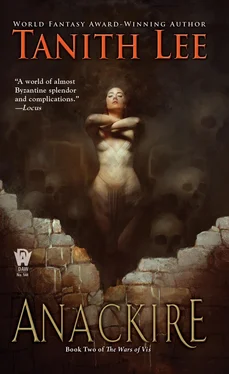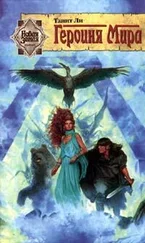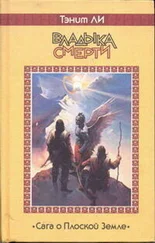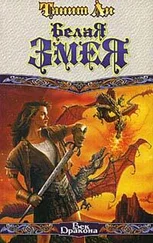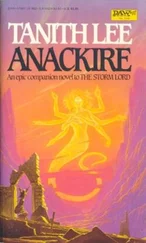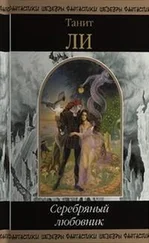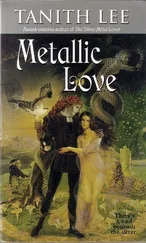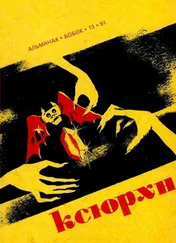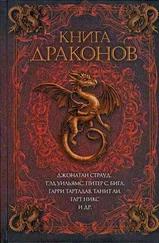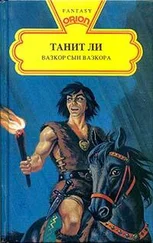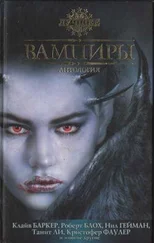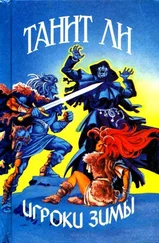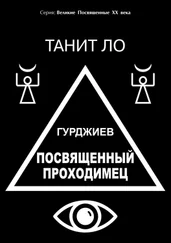“You’d tell me in your own good time.”
So he told her.
They slept till sunrise, when the little red sheep they kept in the yard began to bleat, wanting the pasture.
The hunter’s wife rose and dressed. She kissed her husband.
“You sleep. I’ll see to Babbya.”
Smiling, he turned on his side, and smiling the girl sought the door, combing her black hair as she went. She loved her man well, though he was some twelve years older than she. But then she had cause. He was a fine man, and besides, her father.
Outside, the sun stood on a hill. The red sheep frolicked. Between the two, the wolf child waited on the slope, her face to the hunter’s door.
The hunter’s wife took in her breath, as the hunter had done. In her case, it was purely awe. The figure on the slope, perhaps ten years old, looked like one of the exquisite bone figures from the board game.
There was no sign of the wolves, only the wolf child, with flowers in her sunrise hair.
The hunter’s wife slipped back into the house. She put a bread cake and some fruit into a dish, wine from the village vine-stocks into another. She re-emerged, bowed, then carried the offerings out beyond the yard, beyond the village, but not far up the slope, and left them there. The child watched her. The hunter’s wife came down again, went through the gate in the stockade and into the yard, and kissed the red sheep on its nose. “You must stay here. Or her brothers may come and eat you.”
The child could not possibly hear what the woman said, but the child suddenly curved her mouth—a smile. She stepped down the slope to the dishes. She did not comport herself like a wolf child, and she seemed to know what a dish was for. Gracefully, she took a berry from one and put it in her mouth. Then she raised and took a sip of wine from the second dish. She left the dishes neatly, turned, and ran away like a ghost of the wind.
The hunter’s wife laughed with joy at the beauty of her movements.
When her husband woke again she said to him, “Not a wolf child. A banaz.” Which in the mythos of Lan was a rural deity.
“A Lowland banaz, then.”
“Why not? Since their king made them lords, they walk all Vis where they will, and their sprites would do likewise.”
About noon there was an outcry. The sons of the fourth and fifth houses had seen a wolf sitting on the slope looking at the village. Men ran on to the street made only by footfalls.
The hunter went out, too, and beheld it was the black wolf, its tongue lolling like a ribbon.
“Fetch your spears!”
“No, no. It’s the familiar of a banaz.”
“Rubbish. It’s a wolf and we must kill it before it comes for the livestock, or for us.”
One of the younger sons unwisely hurled a broken pot at the wolf. It missed. The wolf panted in the heat. Or laughed.
Just then the hunter’s wife went up the slope toward the wolf, carrying a dish of meat from yesterday’s kill. The men shouted, but the hunter said, “Wait. My daughter-wife is clever in these things.” Nevertheless he put his hand to his knife, as he had in the evening on the hill.
A few feet away, the woman bowed to the wolf and set down the dish. The wolf came to the dish and began to eat. The woman walked down the hill again.
When the black wolf had finished, it rolled on its back in the early dust and rose up a gray wolf, and ran away.
The village muttered.
For a month, almost until Zastis, this kind of thing went on. A wolf would be seen on the periphery of the village, or the wolf child herself. None of the village animals were harmed, or the young infants or girls. Offerings came to be made, not only by the hunter’s wife, and were either partaken of or spurned. Women working among the vines became accustomed to the wolves, as to a couple of large dogs. The men would leave them portions of a kill, and began to say such phrases as: “The white wolf didn’t come today. I missed the shape of him on the slope.”
They were more innocent and more knowing in the hills. They could accept such things.
To the child they put up a small altar, and left there items which might please, flowers, honey, beads. These were not touched.
Then, one morning, the hunter’s wife opened her door and the wolf child was the other side of it. She did not speak, and maybe was unable to, having spent her formative years with wild beasts. Yet she smiled, and her smile was lovely. The girl stood back, and the wolf child came into the cot.
The hunter’s wife made no opposition, but she was unsure now of what to do. She watched the wolf child, who was a banaz, pause by the curtain of the sleeping-place, turn away, put one finger, so white it seemed luminous, on the rim of an iron cauldron.
“Let me learn from you,” said the wolf child.
The girl started. She was deeply shocked that the child had spoken to her. Then the shock lessened. She realized with a sweet delight the banaz had not spoken in words at all, but by impression only, in the way of the Lowland People, from inside her skull.
She stayed with them in the house only a few days and nights. She learned swiftly how to be human. It was as if she had always known, merely wished to be reminded.
She clothed herself in garments for the first time, clothes of a girl-child from the sixth house, whose daughters were still young enough to provide them. And she might always have been clothed. She observed the flow of the loom, the bubbling of pots, the gamboling of Babbya, all with equal intensity. She braided her hair and unbraided it. She washed herself in the stream, but, as the hunter’s wife had noted, true banaz that she was, the wolf child had always smelled clean, and of a strange natural perfume, like a flower.
She knew the Vis language, either that or she had no need to know it, taking information with tactful delicacy from their minds. Although no one but the hunter’s wife had direct communication with her, and that seldom.
By night, the wolves slept at the door.
The village left the altar standing.
The hunter’s wife began to love the child, even in these few days, love her as the daughter-sister the gods had not yet granted her. But the child in her village clothes, her hair like sunbeams, seemed older than a child. She seemed a woman.
And on the fifth day the hunter’s wife wept, and the wolf child stroked her hair, her hands a caress, her eyes that were like suns eclipsed by a remote gentleness.
“You must get the loan of a zeeba,” said the hunter’s wife to her husband. “You must go south.”
He frowned, at his wife’s sorrow, the child’s silence.
“Why?”
“She’s told me, in the way she tells me things. She wants you to take her to the town. And—to sell her there, as a slave.”
“There are laws,” he said, “against the sale of Lowlanders.”
“She gathered herbs on the hills today, to stain her skin and hair.”
The hunter stared, as at the first. And afterwards he stared almost in a renewal of fear as he saw the child standing under the lamp, her hair brown as wood, and her skin swarthy, which before had not even tanned.
The wolves dashed, black and white, over the brim of the blue hills, and ran with the cart and zeeba for several miles.
The child regarded them, but did not make a sound. That she spoke to the wolves within her head was likely.
When the wolves dropped back and did not reappear, the hunter said: “You’ll have taken away the luck of my village.”
But he knew that was unfair and untrue, and after-seasons proved as much.
The town of Olm lay in that nebulous region of borderland where Lan married with Elyr. Mountains towered over the town, the backbone of the landscape. Somewhere up amid their spines was to be found the ancient kingdom of the Zor, leaderless now, save that it gave its fealty to the king at Amlan. The Zor had, centuries ago, held to itself a religion currently commonplace: The worship of a woman god, to whom the serpent was sacred.
Читать дальше
